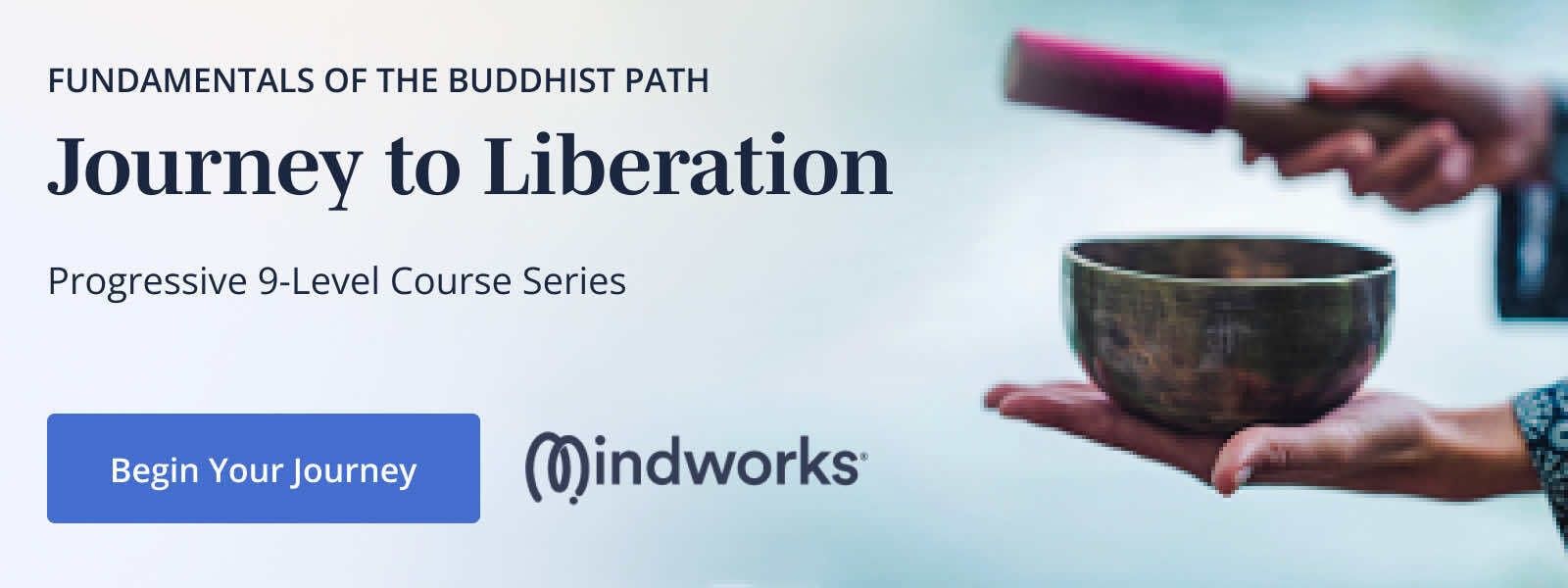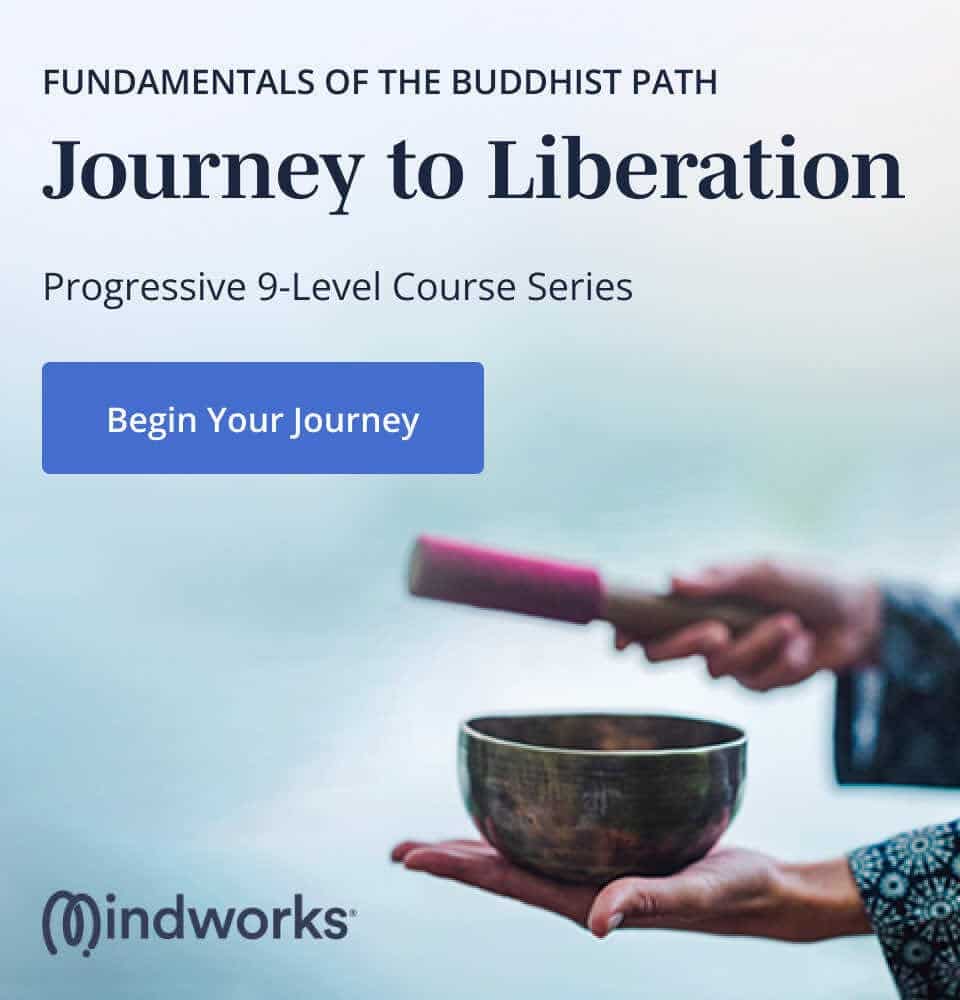What is Death Meditation in Buddhism? Death meditation can sound grim and scary. As such, it’s a practice that is sometimes reserved for advanced meditators. But in many traditions, meditating on death is foundational, a preliminary that motivates us...
What is Death Meditation in Buddhism?
Death meditation can sound grim and scary. As such, it’s a practice that is sometimes reserved for advanced meditators. But in many traditions, meditating on death is foundational, a preliminary that motivates us to train the mind, open the heart, and live our best life.
Contemplating death is not typically a habit of ours, especially in our current culture. Not only are we shielded from death and the dying, we’re led to believe we might even escape death with the right products and procedures. In the least, we assume we’re guaranteed a long life if we do all the right things, such as eating well and exercising.
This attitude has lulled us into a complacency, which will only cause us greater suffering at the moment of our death. Buddhist meditations on death and impermanence serve to remind us of three key truths regarding death that we seem to have forgotten.
The fact of our death is certain. The time of our death is uncertain. The only thing that can help us at the time of death will be our state of mind.Meditating on death entails contemplating these truths so that we never forget them, even outside of meditation. The practice has several benefits which help enhance our living.
Benefits of Contemplating Death
Many scoff at contemplating death, as if to do so would bring it closer to us. When we look more closely at this fear-based reaction, we see we are mistaken. Death meditation is not a practice that would have us wallowing in negativity and doom, it’s just the opposite.
Death awareness practices in Buddhism help us become more appreciative for each moment we’re alive. They inspire the unfolding of the three higher trainings, meditation, ethics and wisdom.
Meditation
When we die, the wealth and material objects we’ve accumulated will be no help to us. All the money in the world cannot prevent our death. Our friends, family and pets cannot prevent our death, nor can they go with us. The only thing that will comfort us at the time of our transition will be the stability, courageousness and wisdom we’ve established via meditation.
Despite our best laid plans or statistics regarding the average lifespan, death can come for us at any moment. We do not know when we will die. What we do know is that when the time comes, we’re likely to react as we do now to fear, uncertainty, loss, and the unwanted.
A consistent meditation practice not only serves us at the moment of death, but today. Right now is also the best time to cultivate a more calm, clear and unattached state of mind, for we cannot guarantee we’ll be here for tomorrow’s practice.
Ethics
If we truly walked this earth believing that each breath could be our last, we would behave more kindly, both to ourselves and others. Most likely, we would do our best not to indulge in negative thinking, speak harsh or unkind words, or act out of anger or spite. We’d avoid harming others and put more effort into letting go, forgiving or making amends.
For Buddhists, diligence in remembering that death could happen at any moment is coupled with a desire to arrive at that moment with a calm, unburdened state of mind. Our state of mind at the moment of death is what propels us into our next rebirth. Leave worrying about what we’ve done or holding on to past resentments, and the next moment’s reality will be shaped by those afflicted emotions.
Wisdom
To meditate on death is to cultivate the wisdom of non-attachment. Everything in this life will change and someday fade, even our own bodies and minds. When we embrace death as an inevitable part of the cycle of life, we free ourselves from the suffering that arises when we try to fight this truth. Everything arises then passes away, including us.
Accepting this truth of impermanence takes practice. Meditation on death is the practice of letting go. Detachment does not mean no longer caring or becoming indifferent. Instead, the awareness that nothing lasts forever can inspire us to love more in each and every moment. We become more fully alive.
How To Practice Mindfulness Of Death
We can start meditating on death by simply remembering impermanence during our mindfulness meditation. As you breathe in, observe the cyclic nature of the breath, how the exhale must end before the inhale begins, and so on.
Most Buddhist meditations on death fall under the category of awareness meditation. This includes contemplative meditations, such as watching each breath with an awareness it could be your last.
One common contemplation is on the three points above. (1) my death is certain, (2) the time of my death is uncertain, and (3) the only thing that will be of benefit to me as I die will be the strength of my spiritual practice.
Death awareness meditations may also include contemplating the four reminders, visualizations, such as visualizing the body as a corpse, or imaging in detail your own deathbed and the dying process.
When practicing death meditation, it’s normal to feel some fear, anxiety or tightness. Some might even say if you do not feel hesitant, you’re doing it wrong! Approach the practice, and your reaction to it, with gentleness and self-compassion. Practicing under the guidance of a trusted teacher is recommended.
As you meditate, recall that meditating on death is never separate from meditating on the preciousness of this life. Exploring the end of life can open us to a profound gratitude and appreciation for this one.
The post How Meditating on Death Helps us Live Better appeared first on Mindworks.










